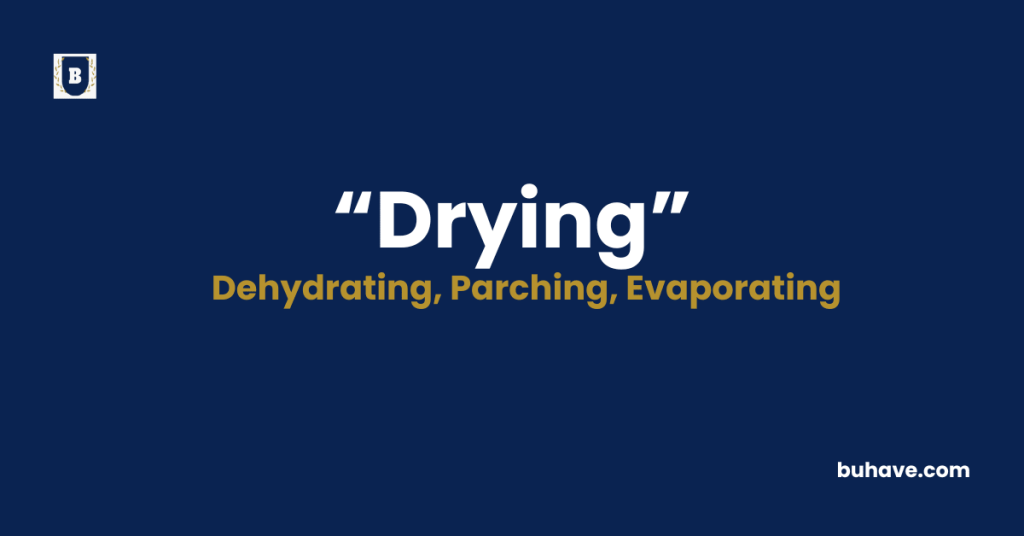The word Drying (adjective) describes something that removes moisture or causes dryness, often leaving a surface, object, or environment without dampness. In this guide, you’ll learn the full definition, synonyms, antonyms, etymology, and real-life examples of how to use Drying correctly in sentences.
Drying Explained in Depth
A complete and detailed guide to the word Drying including meaning, definition, examples, etymology, synonyms, and antonyms.
Meanings of Drying
Drying means removing or reducing moisture or wetness from something. It can refer to natural or artificial processes that result in something becoming dry, like the wind drying clothes or a heater drying the air in a room.
Definition
Drying refers to the process or effect of becoming or causing to become dry by removing moisture. It can be used for physical materials, environments, or conditions that no longer retain water or dampness.
Etymology
The word drying comes from the verb “dry,” which originates from Old English “drȳge,” meaning without moisture.
It developed through the Middle English “drien,” meaning to make or become dry.
Example Sentences
- The drying winds made her skin feel rough and cracked.
- After the rain stopped, the sun began drying the pavement quickly.
- He used a towel for drying the dishes after washing them.
Drying Synonyms
- Dehydrating
- Evaporating
- Desiccating
- Parching
- Scorching
- Withering
- Air-drying
- Baking
- Shriveling
- Wicking
Drying Antonyms
- Moistening
- Hydrating
- Dampening
- Soaking
- Wet
- Rehydrating
- Drizzling
- Saturating
- Wetting
- Watering
FAQs about Drying
Here are some Frequently Asked Questions (FAQs) about the word “Drying”
1. What does “drying” actually mean?
“Drying” means the process of removing moisture or causing something to become dry.
2. Is “drying” only used for physical objects?
No, it can also describe conditions like drying air or even metaphorically in some literary uses, though it’s mostly used in physical contexts.
3. Can drying happen naturally?
Yes, drying can occur naturally through sun, wind, or air exposure.
4. How is drying different from dehydrating?
“Drying” is a general term for removing moisture, while “dehydrating” often refers to removing water from food or the body.
5. Is drying always intentional?
No, it can be both intentional (like drying clothes) or unintentional (like drying skin due to cold wind).






